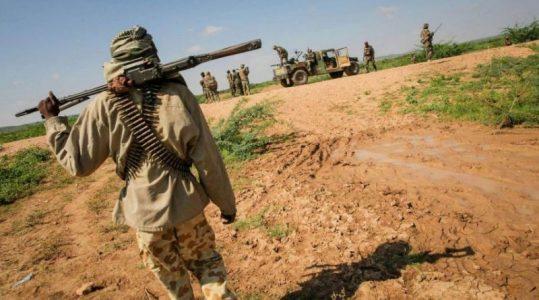
United Arab Emirates arms Al-Qaeda and ISIS terrorists in Yemen
A Yemeni warlord who has also been a fundraiser for Al-Qaeda and at one point is believed to have belonged to Daesh is being armed by the United Arab Emirates (UAE) the Washington Post has discovered. In a startling interview, Abu Al-Abbas revealed that he has received millions of dollars in weapons and financial support for his fighters from the UAE, which is one of Washington’s closest Middle East allies, despite the fact that he was once a member of militant groups on the US terrorist list.
“The coalition is still supporting me,” he claimed, but he denied that he is a terrorist. “If I really was a terrorist, they would have taken me in for questioning.”
The Post points out that Al-Abbas’s case underscores the awkward alliances and odd bedfellows that are found on all sides in Yemen’s four-year war. It also raises questions about the UAE’s conduct in the conflict, highlighting its objectionable alliance as well as its part in the humanitarian disaster unfolding in the southern Arabia Peninsula.
Along with its more powerful Gulf neighbour Saudi Arabia, the UAE has been involved in a vicious military campaign in Yemen since 2015. The war is seen widely as a disaster which has created one of the worst humanitarian crises since the Second World War, with an estimated 85,000 Yemeni children having died and a further 20 million facing starvation. The Gulf coalition is seeking to defeat the northern Yemeni rebels known as Houthis and restore the country’s government-in-exile. The deadly conflict has been supported by the US, which assists it Gulf allies with intelligence-gathering, logistical support and the sale of billions of dollars’ worth of weapons and equipment.
Officials cited by the Post spoke on condition of anonymity in order to discuss sensitive matters freely. They said that the UAE “preferred to work with” some Islamic fundamentalists who serve as a “counterweight” to its enemies in the south. Under such circumstances, the official acknowledged, “It’s very easy for Al-Qaeda to insinuate itself into the mix.”
Al-Qaeda in the Arabian Peninsula, or AQAP as the Yemeni affiliate is known, was responsible for sending parcel bombs on flights into the United States in 2010 and a failed plot to bomb an airliner over Detroit on Christmas Day 2009, among other attacks against Western targets. Destroying the group is one of America’s major goals in the war on terror.
Ahmed Fadhil Abu Suraima, who is the deputy governor of the central province of Bayda in Yemen, commented on the alliance with both Al-Qaeda and Daesh fighters in Yemen. He questioned the UAE’s motive. “They try to make it appear in the media that they are with the United States and they are fighting against Al-Qaeda and the Islamic State,” he insisted. The implication is that the UAE is, in fact, neither one nor the other.
According to Nicholas Heras, a Middle East expert at the Centre for a New American Security, a Washington-based think tank, someone like Al-Abbas “has become a type of indispensable man for the UAE in Yemen.”
While Al-Abbas denies the terrorism allegations, saying his opponents in Taiz fed the US authorities with false intelligence, he still admits that his militia fought alongside Al-Qaeda and Daesh fighters. Some militants, he explained, operated in areas that he controlled but, “We didn’t approve of their ideology.” His men, he added, later pushed them out.
Source: MEM





